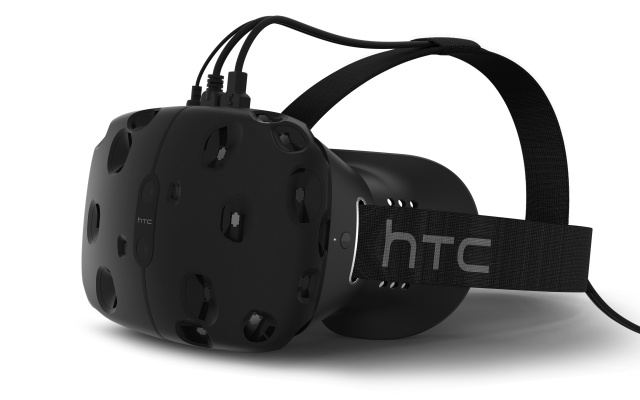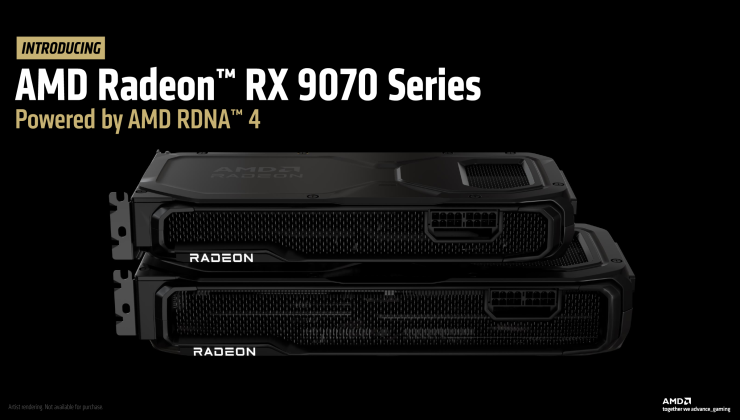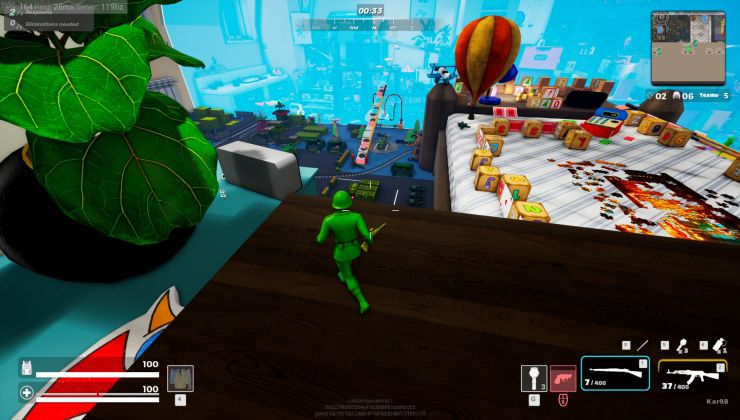
According to a renowned German PC games magazine, Gamestar, the SteamVR device HTC Vive is going to be released only for Windows in the beginning.
Gamestar journalists attended a demonstration of the Vive HTC and spoke to HTC representatives. They found the VR impression very convincing. But I guess there are enough descriptions of that out there on the net. The news for Linux users is hidden in their conclusion: According to HTC "Executive Director Global Marketing" Jeff Gattis, Vive HTC will only work with Windows on release.
Here's the original German text:
QuoteErstaunlich: Auch wenn Steam große Anstrengungen unternimmt, mit SteamOS ein eigenes Linux-Derivat als Gaming-Betriebssystem in den Markt zu drücken, wird die Vive vorerst ausschließlich mit Windows funktionieren. Steam-Boxen wären eh zu langsam für die Vive-VR, schmunzelte Gattis schelmisch, man konzentriere sich lieber auf Windows als Betriebssystem.
My translation:
QuoteSurprisingly, although Steam [Valve] is making great efforts to push its own Linux derivative SteamOS to the market as a gaming operating system, Vive VR will initially work exclusively with Windows. Steam machines are too slow for the Vive VR anyway, Gattis smiled mischievously, so they prefer to concentrate on the Windows operating system.
I tried to find other mentions about this fact on the net, but to no avail. The Gamestar people cannot possibly have been the only journalists going to that event...?
Although they said it will not work, there might be a way to get it running on Linux as well. But to me, SteamVR was one of the major possible attractions of Steam Machines on release, and if this news turns out to be true, it's another rather disappointing one for me.
Full article (German)
Some you may have missed, popular articles from the last month:
All posts need to follow our rules. For users logged in: please hit the Report Flag icon on any post that breaks the rules or contains illegal / harmful content. Guest readers can email us for any issues.




 How to set, change and reset your SteamOS / Steam Deck desktop sudo password
How to set, change and reset your SteamOS / Steam Deck desktop sudo password How to set up Decky Loader on Steam Deck / SteamOS for easy plugins
How to set up Decky Loader on Steam Deck / SteamOS for easy plugins
Maybe "impishly", "tricksy" or "waggishly" fit better (never heard any on these), but there's no joke in "schelmisch".
http://dict.leo.org/ende/index_de.html#/search=schelmisch
Edit: I did some searching, and it might be more of an issue with engine plugins. The SteamVR plugins for Unity and Unreal currently don't support Linux (for Unity: https://www.assetstore.unity3d.com/en/#!/content/32647).
Grumpy old man out.
As for 3D technologies that don't require you to strap anything to your face, the Nintendo 3DS is an excellent example that works quite well. I'm sure that kind of technology could be scaled up to the size of computer monitors, but they'd probably be incredibly expensive.
1- Light headset, i.e. something not much larger than regular sun glasses. The current VR headsets will probably tire your neck very quickly.
2- Large FOV. You need to feel the image surrounding you rather than seeing a rectangular image that feels to be half a meter away from you.
3- Low latency. Latency in VR will be much easier to notice than in monitors and will be annoying.
If they manage to fix the upper three then it will definitely be a success (assuming reasonable pricing). I don't know how the Vive do in terms of latency and FOV, but it's size definitely doesn't look right and neither does Oculus.
https://github.com/ValveSoftware/openvr
I tend to say don't worry.
After all, we don't actually know much about that HTC guy Jeff Gattis.
OTOH, if some of the editors have good contacts to Valve, it might be
interesting to hear from them if Gattis' statement is also valid for Valve. :D
Btw before people jump in claiming I don't know what I'm talking about, I've used the Samsung Gear VR (2560x1440), and the Occulus Rift DK1 (720p) and DK2 headsets (1080p). I've also used a really craptastic 1990s VR headset that had the square picture and it was terrible. I like VR, but I'm trying to be realistic about where the technology sits for me. (I will also add that the Unreal Engine 4 tech demo was magical, the 3D effect was crazily good and I can see the potential for interactive worlds is immense.)
And I wouldn't be surprised if Jeff Gattis did said something like "depending on some factors the HTC Vive might initially only work on Windows[...]" and that the journalist turned it in a way to make it looks like he didn't care about Linux at all to make it more dramatic.
I guess the people at Valve will take it with humor (as it was meant). I couldn't care less for VR (although I must admit it leaves a bitter taste as to where priorities lie).
BUT: Valve isn't doing this because they see Linux as the great platform it is, they do all this, because they wanted to break free from Microsoft when the rumors about a (n even more) walled garden aka MS Store first appeared.
However one thing is interesting - is it me or there's general consensus between engine/VR crowd that OpenGL is somehow unworkable for VR? If that's true, why they just don't openly say so? I personally think it's nonsense, but it seems there's more challenges than we know.
I don't blame Valve on this one though - it's HTC product, it's their drivers. Their decision to support or not to support Linux atm. Reasoning given is weak, but I guess that's just PR talk "it's not our objective at the moment". As for 'guy smiling' check out his LinkedIn profile - that's how he smiles. No hidden agenda imho.
Feeling disappointed? Kinda. But kinda expected that after few months of disappointing news on VR front on Linux. They don't care about us. We don't register on their radar yet.
I think it's relatively easy to verify - contact this person and ask to clarify his comments. Media does it all the time, and GamingOnLinux is prominent enough to get an answer.
Much how I felt until I tried the 2nd gen Occulus on a driving game. For any kind of cockpit game, this will (easily) change the world. Apparently it's incredible with Elite 2.
I'm still to be convinced by FPS environments though. Perhaps something like the Talos Principle. I could see that being pretty impressive.